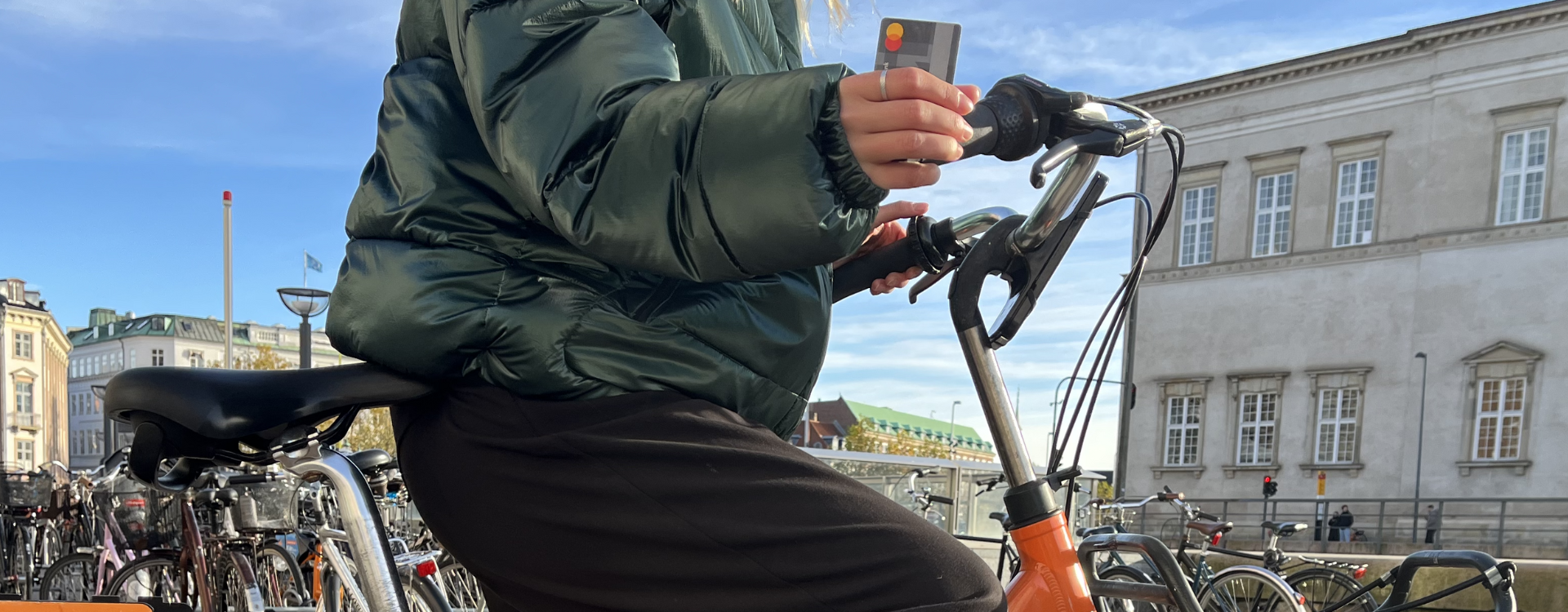Innovative solutions for a more sustainable future
February 20, 2025 | By Julia Ross
Throughout the year, Mastercard has advanced its products and services strategy with environmental impact in mind to drive growth for our company and our partners. From supporting lower-carbon commutes to offering seamless ways to support high-quality forest restoration, Mastercard is embedding environmental impact into businesses’ and consumers’ everyday choices.
Enabling seamless bike rentals
Micromobility, the transportation over short distances on lightweight vehicles such as bicycles or scooters, is a market that is expected to reach $360 billion by 2030. The increased use of lightweight vehicles can have an impact on not only local communities, but the environment as a whole by helping to reduce congestion and emissions. In November, Mastercard and Donkey Republic introduced frictionless payments for bike rentals in Copenhagen, allowing local riders and visiting tourists to rent bikes with a simple tap of their Mastercard payment cards, digital wallet or payment-enabled wearable. Our work is modernizing the mobility landscape in Copenhagen to align with global cities where seamless mobility is essential for more environmentally sustainable travel. Together, we’re providing an additional payment option for bike riders, complementing the existing app-based solution to help make low-emissions transit more accessible and desirable.
As part of the partnership, Mastercard and Donkey Republic will donate to Conservation International the approximate cost to plant one tree for every bike rental paid with a Mastercard in support of the Priceless Planet Coalition, with a maximum total donation amount that would help restore of 25,000 trees. The donation highlights the environmental impact people can make by choosing a bike as their mode of transport. The "Traversing cities seamlessly" report from Mastercard explores how all modes of transport — trains, buses, cars, and bikes — can connect via the same seamless payment systems as retail payments.
Expanding portfolio of restoration sites
In October, the Priceless Planet Coalition welcomed new restoration sites and enhanced existing projects to reinforce the commitment to restoring vital ecosystems globally. Together with Conservation International and the World Resources Institute, alongside 150 corporate partners, we’ve expanded our global portfolio of forest restoration projects that aim to capture carbon emissions, support local communities and enhance biodiversity.
This expansion, which includes projects in the High Andes, Eastern Himalayas and Thailand, reflects the coalition’s approach to selecting locations that have strong implementation partners and socially and ecologically appropriate restoration strategies. This development brings the total number of Priceless Planet Coalition’s restoration projects to 22, now with representation in the following locations: Asia Pacific (Australia, Cambodia, China, the Philippines, India, and now Thailand); Latin America (Brazil, Colombia, Guatemala, and now including High Andes restoration sites in Ecuador and Peru); Europe (France, Portugal, Spain, Scotland); Middle East and Africa (Madagascar, Democratic Republic of Congo, Kenya, Malawi, United Arab Emirates); and North America (Mexico, United States, Canada).
Supporting small businesses’ climate-smart growth
Businesses of all sizes are key to helping our planet, and small businesses specifically are key drivers of global economic output. Small businesses have to be supported in the transition to a low-carbon economy. A new report, produced by Christensen Global with support from the Mastercard Center for Inclusive Growth, highlights three things small businesses need to unlock their power to accelerate climate-smart inclusive growth: data, capital and wrap-around support.
Data helps small businesses adapt to impacts of climate change and help meet regulatory expectations, while capital and effective risk management tools are essential for adopting mitigation practices. Trusted institutions can provide technical assistance and training, ensuring small businesses are prioritized in climate strategies and can contribute significantly to climate adaptation and mitigation efforts.
Mastercard is deeply committed to supporting small businesses to thrive in the digital economy and contribute environmentally focused solutions of their own through programs and solutions like Mastercard Strive, Community Pass, and startup engagement programs such as Start Path. In November, the company shared that it surpassed its goal of connecting 50 million micro-, small, and medium-size enterprises to the digital economy through payments acceptance by 2025. By bringing small businesses into the digital economy, we are helping them better access data, capital and wrap-around support to strengthen their climate resilience, reduce environmental impact and embrace sustainable growth.
Partnership spotlight: Bringing climate leaders into the digital economy
Each year delegates from all over the world converge at the United Nations Climate Change Conference to collectively agree on actions to strengthen inclusive climate action. The U.N.’s’ “Chief Cashier” (yes that’s the official title!) still heavily relies on cash for event-related expenses, creating significant challenges around costs and payments security. For this year’s COP in Baku, Mastercard’s issuing and embedded finance partner Railsr worked with the U.N. Secretariat to distribute pre-loaded Mastercard cards made from recycled plastics to delegates, streamlining costs while promoting secure, safe transactions for the climate leaders.